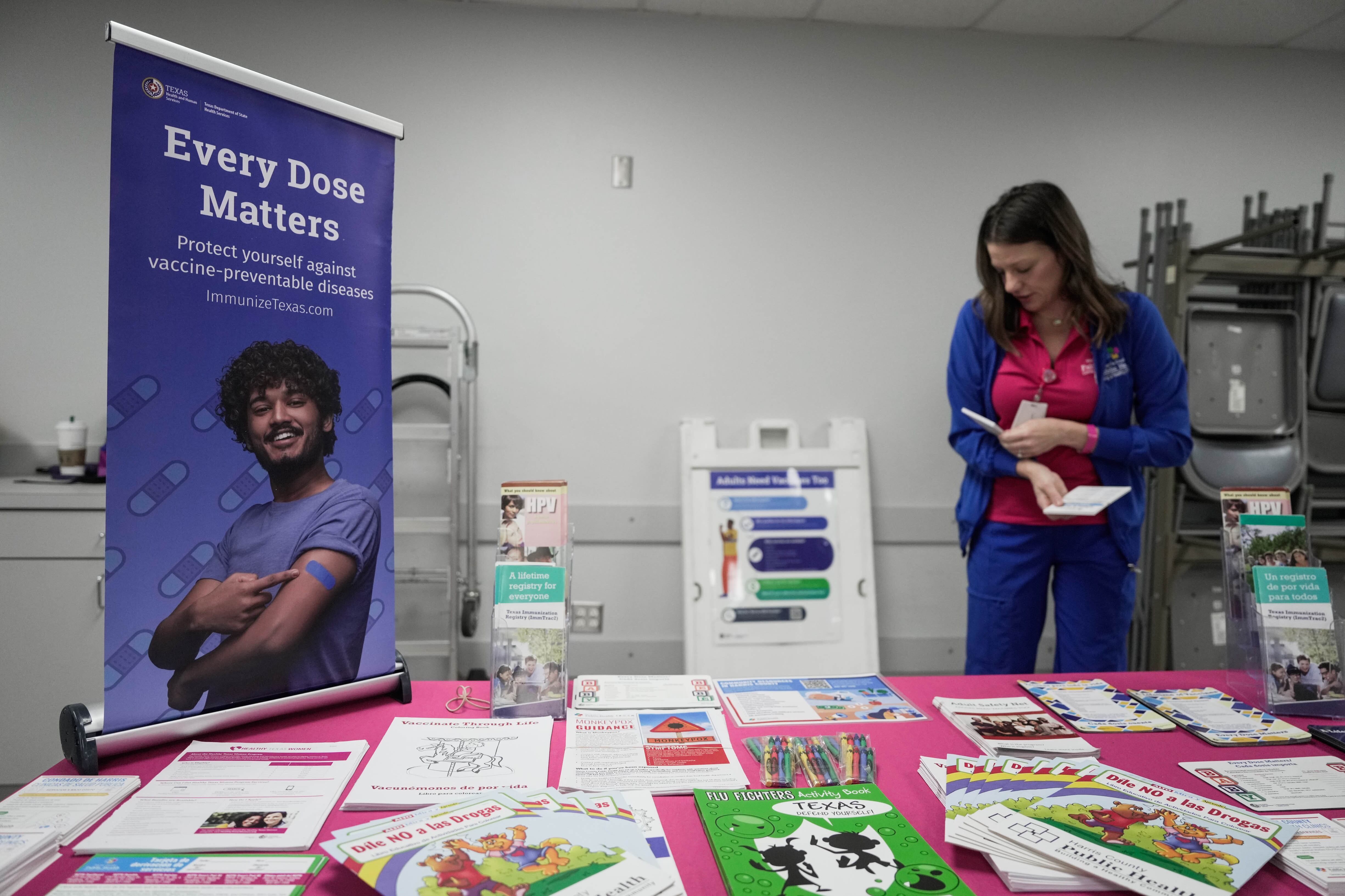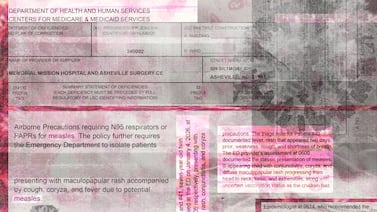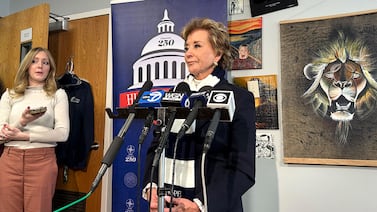Public health, explained: Sign up to receive Healthbeat’s free national newsletter here.
While the most serious measles epidemic in a decade has led to the deaths of two children and spread to 27 states with no signs of letting up, beliefs about the safety of the measles vaccine and the threat of the disease are sharply polarized, fed by the anti-vaccine views of the country’s most senior health official.
About two-thirds of Republican-leaning parents are unaware of an uptick in measles cases this year, while about two-thirds of Democratic ones knew about it, according to a KFF survey released Wednesday.
Republicans are far more skeptical of vaccines and twice as likely (1 in 5) as Democrats (1 in 10) to believe the measles shot is worse than the disease, according to the survey of 1,380 U.S. adults.
Some 35% of Republicans answering the survey, which was conducted April 8-15 online and by telephone, said the discredited theory linking the measles, mumps, and rubella vaccine to autism was definitely or probably true — compared with just 10% of Democrats.
The trends are roughly the same as KFF reported in a June 2023 survey. But in the new poll, 3 in 10 parents erroneously believed that vitamin A can prevent measles infections, a theory Health and Human Services Secretary Robert F. Kennedy Jr. has brought into play since taking office during the measles outbreak.
About 900 cases have been reported in 27 U.S. states, mostly in a West Texas-centered outbreak.
“The most alarming thing about the survey is that we’re seeing an uptick in the share of people who have heard these claims,” said co-author Ashley Kirzinger, associate director of KFF’s Public Opinion and Survey Research Program. KFF is a health information nonprofit that includes KFF Health News.
“It’s not that more people are believing the autism theory, but more and more people are hearing about it,” Kirzinger said. Since doubts about vaccine safety directly reduce parents’ vaccination of their children, “that shows how important it is for actual information to be part of the media landscape,” she said.
“This is what one would expect when people are confused by conflicting messages coming from people in positions of authority,” said Kelly Moore, president and CEO of Immunize.org, a vaccination advocacy group.
Numerous scientific studies have established no link between any vaccine and autism. But Kennedy has ordered HHS to undertake an investigation of possible environmental contributors to autism, promising to have “some of the answers” behind an increase in the incidence of the condition by September.
The deepening Republican skepticism toward vaccines makes it hard for accurate information to break through in many parts of the nation, said Rekha Lakshmanan, chief strategy officer at The Immunization Partnership, in Houston.
Lakshmanan on Wednesday was to present a paper on countering anti-vaccine activism to the World Vaccine Congress in Washington. It was based on a survey that found that in the Texas, Louisiana, Arkansas, and Oklahoma state assemblies, lawmakers with medical professions were among those least likely to support public health measures.
“There is a political layer that influences these lawmakers,” she said. When lawmakers invite vaccine opponents to testify at legislative hearings, for example, it feeds a deluge of misinformation that is difficult to counter, she said.
Eric Ball, a pediatrician in Ladera Ranch, California, which was hit by a 2014-15 measles outbreak that started in Disneyland, said fear of measles and tighter California state restrictions on vaccine exemptions had staved off new infections in his Orange County community.
“The biggest downside of measles vaccines is that they work really well. Everyone gets vaccinated, no one gets measles, everyone forgets about measles,” he said. “But when it comes back, they realize there are kids getting really sick and potentially dying in my community, and everyone says, ‘Holy crap; we better vaccinate!’”
Ball treated three very sick children with measles in 2015. Afterward his practice stopped seeing unvaccinated patients. “We had had babies exposed in our waiting room,” he said. “We had disease spreading in our office, which was not cool.”
Although two otherwise healthy young girls died of measles during the Texas outbreak, “people still aren’t scared of the disease,” said Paul Offit, director of the Vaccine Education Center at Children’s Hospital of Philadelphia, which has seen a few cases.
But the deaths “have created more angst, based on the number of calls I’m getting from parents trying to vaccinate their 4-month-old and 6-month-old babies,” Offit said. Children generally get their first measles shot at age 1, because it tends not to produce full immunity if given at a younger age.
Arthur Allen is a reporter for KFF Health News, Healthbeat’s national reporting partner.






